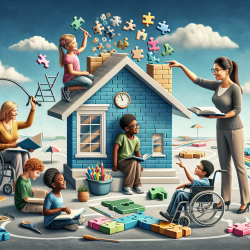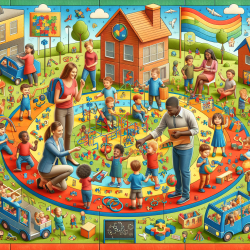Introduction
As children transition into their teenage years, the prevalence of mental health issues tends to increase significantly. Teenagers often struggle to recognize their own mental health problems and may be hesitant to seek help. Therefore, parents and guardians, as the closest adults in their lives, play a crucial role in identifying and managing these issues. This requires a high level of mental health literacy (MHL), which encompasses the knowledge and beliefs that aid in the recognition, management, or prevention of mental health problems.
Understanding the Research
A recent study titled A survey of mental health literacy in parents and guardians of teenagers explored the levels of MHL among caregivers of teenagers in Japan. The study revealed that while many caregivers are willing to help teens with mental health issues, there is significant room for improvement in their knowledge about mental health and their intention to seek professional help.
Key Findings
- The average correct response rate to knowledge questions was 55.4%, indicating a gap in basic mental health knowledge.
- About 30% of caregivers did not consider seeking professional help for potential symptoms of depression in teens.
- There is a lack of awareness about the appropriate amount of sleep needed for teenagers' health and the prevalence of mental illnesses.
Implications for Practitioners
For practitioners working with caregivers and teenagers, these findings highlight the importance of enhancing MHL through targeted education and resources. Here are some strategies to consider:
- Educational Workshops: Conduct workshops that focus on the basics of mental health, common teenage mental health issues, and the importance of professional help.
- Resource Distribution: Provide caregivers with easy-to-understand materials that outline signs of mental health issues and steps to take when these signs are recognized.
- Collaborative Efforts: Work with schools to integrate mental health education into the curriculum, ensuring that both students and caregivers receive consistent messages.
Encouraging Further Research
While the study provides valuable insights, it also opens the door for further research. Practitioners are encouraged to explore the following areas:
- Gender Differences: Investigate why female caregivers tend to have more desirable attitudes towards mental health issues compared to male caregivers.
- Barriers to Professional Help: Examine the reasons why caregivers are hesitant to seek professional help and develop strategies to overcome these barriers.
- Cross-Cultural Studies: Conduct similar studies in different cultural contexts to understand how MHL varies globally and identify universal strategies for improvement.
Conclusion
Improving mental health literacy among caregivers is essential for the well-being of teenagers. By equipping caregivers with the right knowledge and resources, we can foster an environment where teens feel supported and empowered to seek help when needed. Practitioners play a vital role in this process and are encouraged to use the findings of this study to enhance their practice and contribute to further research.
To read the original research paper, please follow this link: A survey of mental health literacy in parents and guardians of teenagers.










